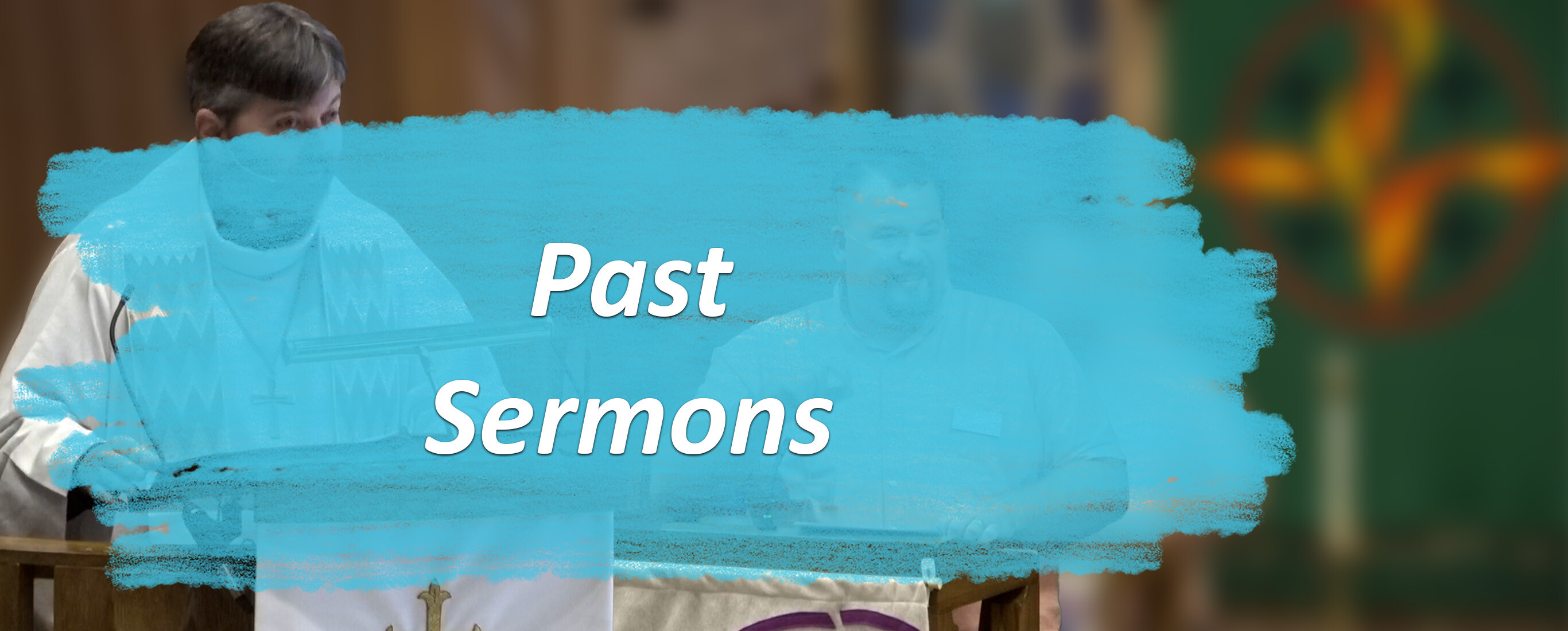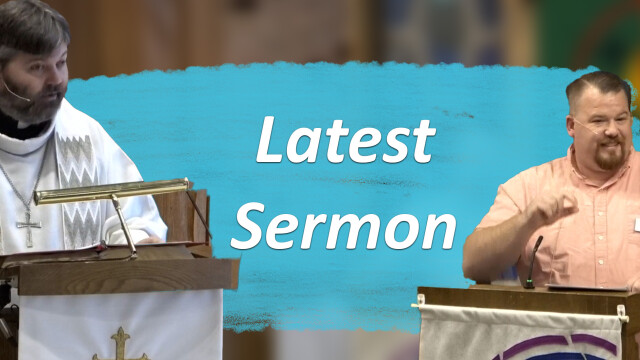Series: Past Sermons
January 29, 2023 | Jonathan Dolan
Passage: Micah 6:1-8
Our text from Micah is arguably the most famous passage from Micah. Specifically, the final verse, “God has told you O mortal what is good; and what does the Lord require of you but to do justice and to love kindness and to walk humbly with your God.” You might even know a person that has Micah 6:8 tattooed on their body. Or maybe you belonged to a congregation that had you choose a verse for your Confirmation, and you selected Micah 6:8. Maybe you know someone who has a picture in their house that reads “do justice, love kindness and walk humbly with God.”
It’s such an inspiring line from passage. It is easy to see why it appeals to us as human beings. We are naturally creatures that care for one another. We feel an innate desire to seek out ways do good works for the other. So it should come as no surprise that we as human beings are drawn to this particular verse in Holy Scripture because it externally affirms an internal understanding of what it means to be human. To do justice, love kindness and walk humbly with God. But what do those concepts mean from a religious perspective? To answer that, we must start first with a little context of when the Prophet Micah lived and what was going on at the time.
Micah was a prophet during the time of the Divided Monarchy. In Israel’s history, this is when the Northern Kingdom with the capital of Samaria was referred to as “Israel.” The Southern Kingdom with the capital of Jerusalem was referred to as “Judah.” Micah mentions three consecutive Kings in his oracle or prophecy, Kings Jotham, Ahaz and Hezekiah who reigned from 742 BC – 686 BC. Thus, the prophet Micah was alive to see the fall of Samaria to the Assyrian Empire in 722 BC and as such the end of the Northern Kingdom. At this point, Micah begins to refer to “Judah” as “Israel.” Even though the Northern Kingdom has fallen and will not return. This is an intentional choice by Micah to help the people feel connected to their storied history of God’s interaction and revelation to them.
In our text today Micah reminds the listeners that God’s covenant has been broken. Having just witnessed the Fall of Samaria, an idea that many believed would not happen because the God of the Universe was on their side, Micah tells the people something they do not want to hear. That they have indeed broken their covenant with God and as such, soon Jerusalem will fall as well. Therefore, the Prophet Micah says listen people, God has seen the way you have not carried out God’s justice for the poor, oppressed, widow or orphan. God has seen how you have left those to hunger, starve, sick and imprisoned alone. God has seen the ways you have forgotten the innate responses of being a human. If we are honest with ourselves, God could say the same of us today.
Far too often do we as covenantal people remain silent when another group is oppressed that we may not belong too. Far too often do we buy the nicer home for ourselves before thinking about how the purchase of a less desirable home and the money saved be given to those who have no shelter. Far too often do we rely on others to speak up while we are seated in our chairs because the chair is comfortable.
But we must be clear about something at this point. God’s justice is not the same as our understanding of social justice. There are elements of social justice that fall into God’s justice, but the two concepts are not interchangeable. Social justice means we advocate for the other from a point of privilege that we may have by means of voice and hands. God’s justice is far bigger than simply advocating. God’s justice means that all will be fed. All will be clothed. All will be comforted. All will be supported. All will be named. All will be built up. All will feel God’s immeasurable love. All will experience God’s never-ending mercy, grace, forgiveness and life everlasting.
When we think of the call of Micah 6, it’s not some sort of mantra to live your life by. It’s a mantra that should permeate your entire life. To be in a covenantal relationship with God where your entire being’s purpose is solely for bringing the kingdom of God to those who need it the most. To accompany those on the margins. To walk alongside the downtrodden. To support the weak or lonely. To bring God’s presence to all.
It is my earnest prayer for you that when you hear the words of Micah 6:8, you meditate on them in their entirety. You let them inspire you to bring about God’s justice, kindness and humbleness to everyone you meet. The theological stances held by some of our greatest champions of the faith like St. Francis of Assisi, Rev. Dr. Martin Luther, St. Paul, Rev. Dr. Martin Luther King Jr., St. Peter, Harriet Tubman and Sojourner Truth, St. Augustine and so many others. Faithful Christians who dedicated their lives to pointing first to the work of Jesus Christ on the cross and in the grace. Then, as a response to that, giving of their own life and work to bringing about God’s justice on behalf of the other so that all may come to know God’s eternal love.
Dear siblings in Christ, we have powerful words laid before us today. Ponder them. Pray about them. Contemplate the ways the Holy Spirit is calling you to do this important work. “God has told you O mortal what is good; and what does the Lord require of you but to do justice and to love kindness and to walk humbly with your God.” Amen!
Series Information


